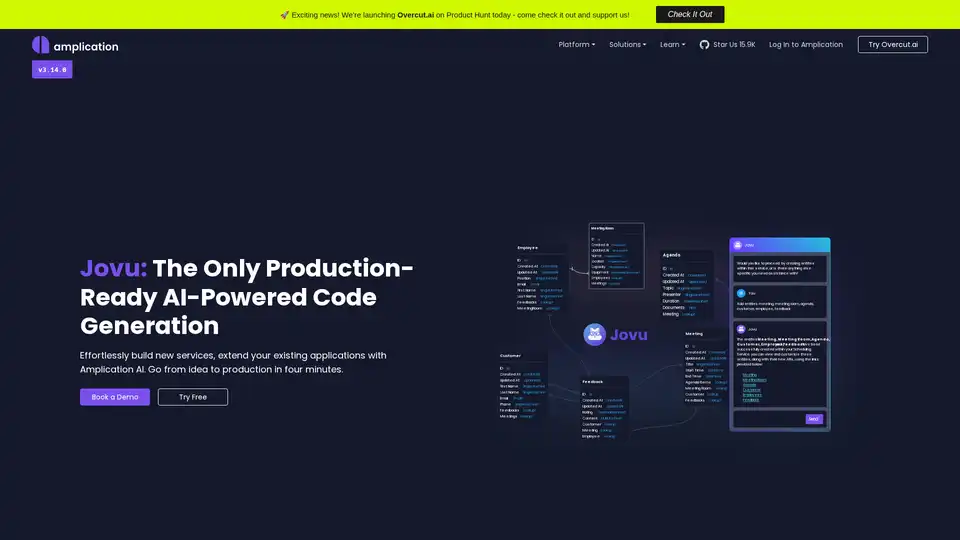
Jovu
Overview of Jovu
What is Jovu?
Jovu is an innovative AI-powered code generation tool from Amplication, designed to transform ideas into production-ready backend services in as little as four minutes. Unlike traditional prototyping tools that deliver basic sketches, Jovu focuses on creating fully operational, scalable codebases for modern applications. It supports languages like Node.js and .NET, ensuring that the generated output adheres to industry standards, best practices, and architectural principles. Whether you're starting a new service or extending an existing application, Jovu streamlines the process by automating repetitive coding tasks, allowing developers to concentrate on unique business logic and innovation.
At its core, Jovu acts as an intelligent assistant that interprets your requirements and outputs complete components, including data models, APIs, authentication, authorization, and even event-driven architectures. This makes it a game-changer for teams looking to accelerate development cycles without compromising on quality or reliability.
How Does Jovu Work?
Jovu leverages advanced AI algorithms to analyze natural language descriptions of your service needs and convert them into executable code. The process begins with you inputting your requirements—such as desired features, data structures, or integration points—into the platform. The AI then processes this input, drawing from Amplication's extensive library of templates, plugins, and best practices to generate a comprehensive codebase.
Key elements of its workflow include:
- Requirement Translation: Describe your service in plain text, and Jovu identifies entities, relationships, and functionalities to build data models and APIs.
- Code Generation: It produces validated, predictable code that's ready for production, covering everything from CRUD operations to security features.
- Customization and Integration: Post-generation, you can extend the code with Amplication plugins, add custom architecture components, or integrate with existing systems. Jovu even offers smart recommendations to optimize scalability and reliability.
- Deployment Readiness: The output is synced directly to your Git repositories, giving you full ownership to modify and deploy as needed.
This end-to-end automation reduces manual coding by handling boilerplate work, ensuring consistency across projects and minimizing errors that often arise in manual development.
How to Use Jovu?
Getting started with Jovu is straightforward and accessible even for teams without deep AI expertise. Here's a step-by-step guide:
Sign Up and Access: Visit the Amplication platform and try Jovu for free. No extensive setup is required—just log in and navigate to the Jovu interface.
Describe Your Service: Input your project requirements via a simple text prompt. For example, specify needs like 'a user authentication system with role-based access for a healthcare API'.
Generate Code: Jovu processes your description and outputs the code components. Review the generated data models, APIs, and other elements in real-time.
Customize and Extend: Use Amplication's tools to add plugins, integrations, or custom code. The AI provides suggestions to align with your tech stack.
Sync and Deploy: Export the code to your Git repo and deploy to your preferred environment. From idea to live service, it typically takes just minutes.
For enterprise users, booking a demo unlocks advanced features like team collaboration and customized workflows. The platform supports live templates and event-driven architectures, making it ideal for breaking monoliths or modernizing legacy apps.
Why Choose Jovu?
In a fast-paced development landscape, Jovu stands out by delivering more than just code—it provides a foundation for scalable, maintainable applications. Traditional coding methods can take days or weeks for backend setup, but Jovu compresses this to minutes, boosting efficiency and resource optimization. It ensures adherence to high standards, reducing the risk of technical debt and deployment issues.
Real-world benefits include:
- Speed: Transition from concept to production rapidly, freeing up time for innovation.
- Consistency: AI-enforced best practices mean predictable, high-quality outputs every time.
- Scalability: Built-in support for event-driven designs and integrations prepares your services for growth.
- Ownership: Full access to generated code in your repos, with no vendor lock-in.
Users report significant productivity gains. For instance, Patrick Mannion from Whiskey House of Kentucky noted, 'We've been able to have a high focus on our product requirements and specific functionality, enabling us to move much faster than anything else I've ever worked on.' Similarly, Steven Xi Zhang from UpChannels highlighted how auto-generated repetitive code allowed focus on custom logic, with easy modifications via Amplication.
Vincenzo Domina from OpenCures Inc. shared, 'Amplication has helped us develop new API services faster in our work on health data software for preventive health care.' These testimonials underscore Jovu's practical impact across industries like IT services, retail, healthcare, and manufacturing.
Who is Jovu For?
Jovu is tailored for development teams and organizations seeking to enhance platform engineering, build new services, or modernize applications. It's particularly valuable for:
- Platform Engineers: Who need robust APIs from existing databases.
- Backend Developers: Tired of boilerplate code and looking for AI acceleration.
- Enterprise Teams: In sectors like healthcare or retail, where compliance and speed are critical.
- Startups and SMBs: Wanting to prototype and deploy quickly without large dev resources.
If you're dealing with monoliths, custom plugins, or Git syncing for event-driven systems, Jovu aligns perfectly with these workflows. It's not just for coders; product managers and architects can contribute via descriptive inputs, democratizing development.
Practical Value and Use Cases
Jovu's value shines in scenarios like enhancing platform engineering by automating service creation, or building APIs on existing databases to extend legacy systems. For modernization, it helps migrate to microservices with minimal effort. In customer stories, teams have used it to streamline workflows, cut development time, and focus on core competencies.
Consider a retail company integrating e-commerce backends: Jovu generates secure, scalable code for inventory management and user auth in Node.js. Or in healthcare, as OpenCures did, for faster API development in sensitive data environments.
Pricing starts with a free tier for trials, scaling to enterprise plans with expert support. Resources like docs, plugins catalog, Discord community, and blog provide ongoing value.
In summary, Jovu redefines backend development with AI-driven precision, making production-ready code accessible and efficient. For teams aiming to build faster without limits, it's the ultimate tool to unlock AI's potential in software engineering.
Best Alternative Tools to "Jovu"
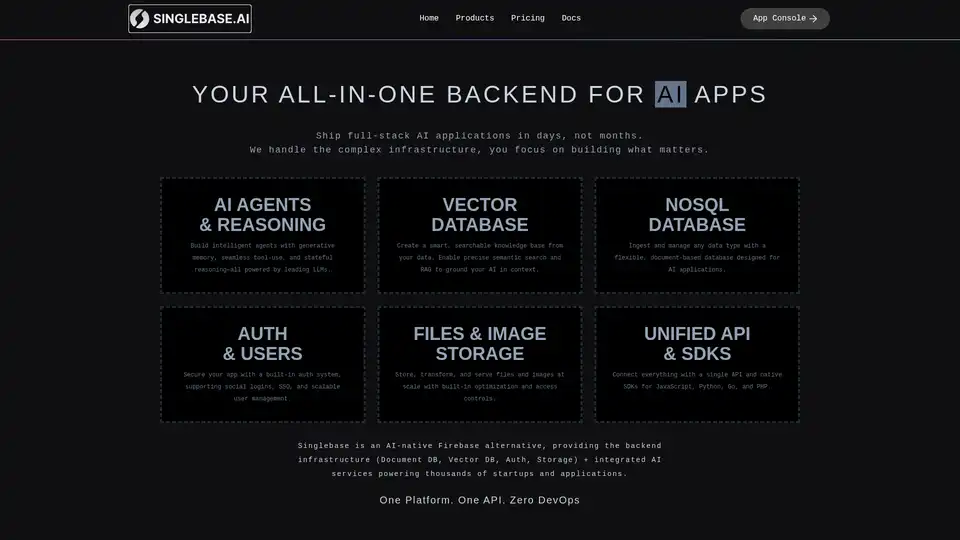
Singlebase is an AI-native Firebase alternative, providing a unified backend for AI applications. It offers Vector DB, NoSQL DB, Auth, Storage and integrated AI services in one platform.
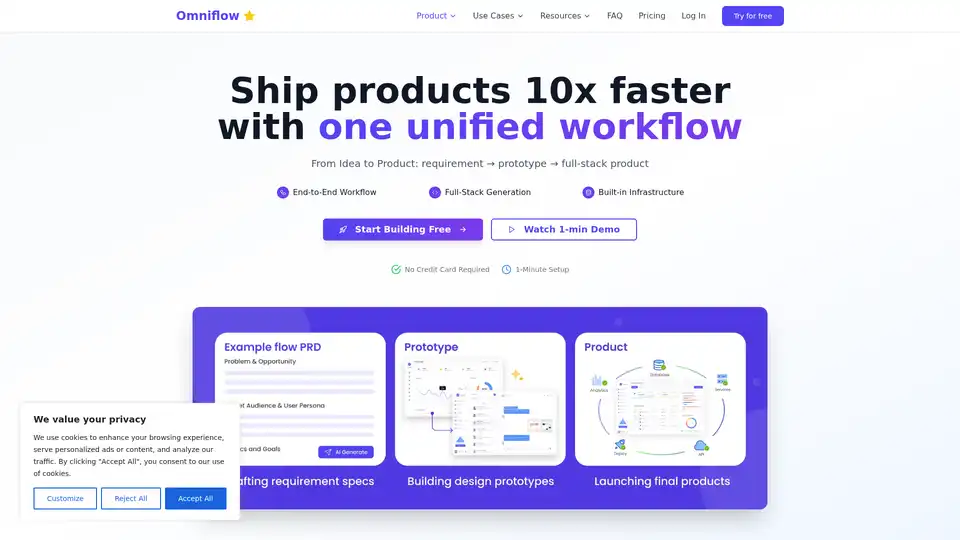
Omniflow is an AI-powered platform designed to supercharge end-to-end product development, reducing development cycles by 90% through intelligent automation between product, design, and engineering teams.
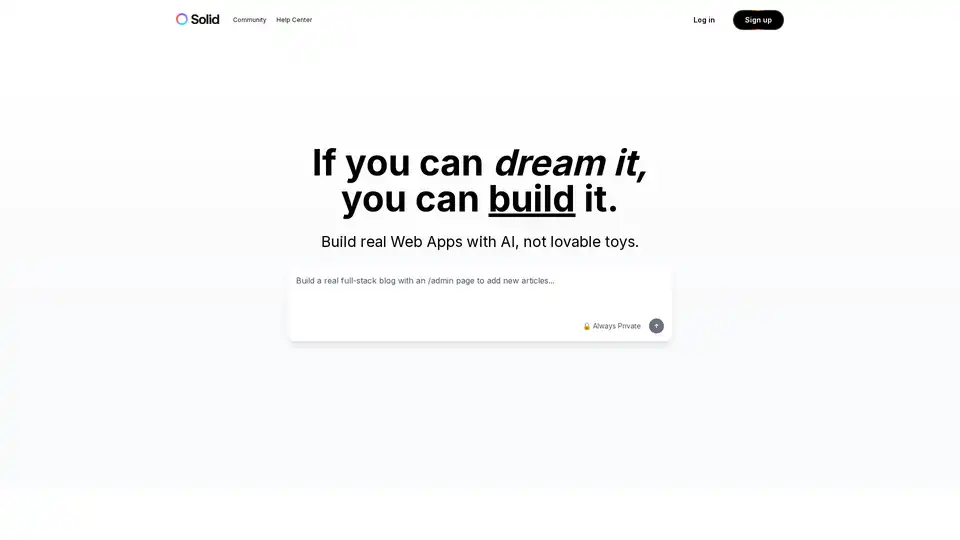
Solid is an AI-powered platform that allows users to build real web applications without coding. It offers a full-stack development environment and integrates with various tools for secure and scalable projects.
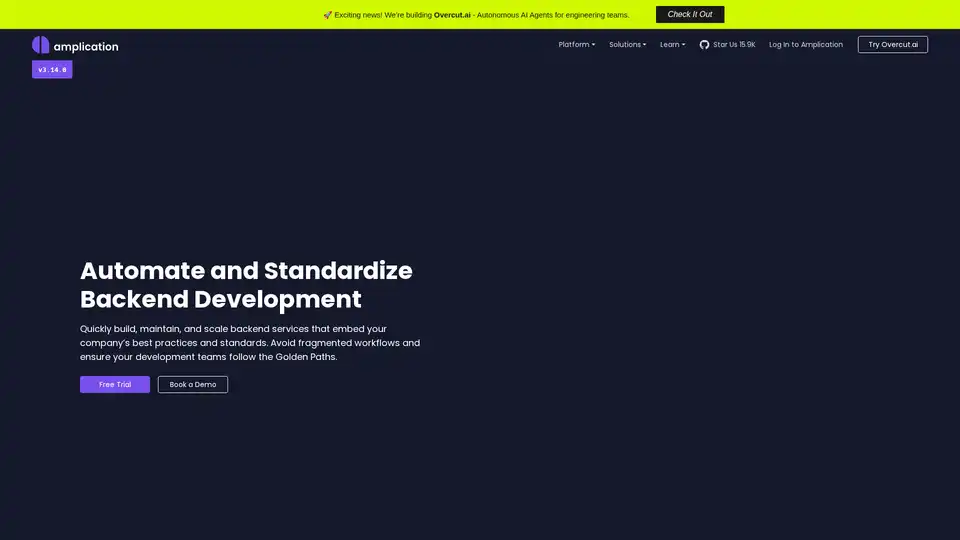
Amplication automates backend development with live templates and AI, helping platform engineering teams build, maintain, and scale services while ensuring consistency and compliance.
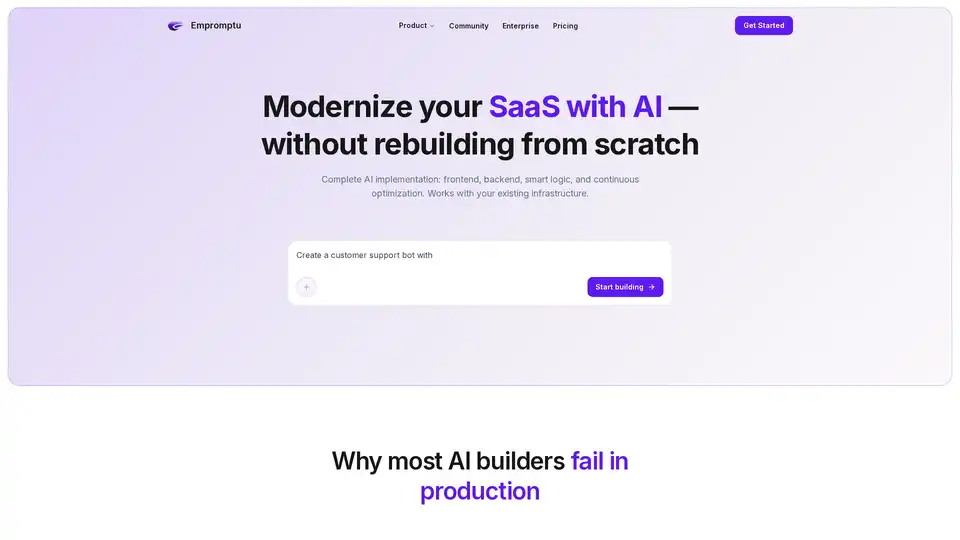
Empromptu is a no-code AI app builder that allows you to build production-ready AI applications with up to 98% accuracy. It embeds intelligence into the core architecture and provides real-time visibility into every request.
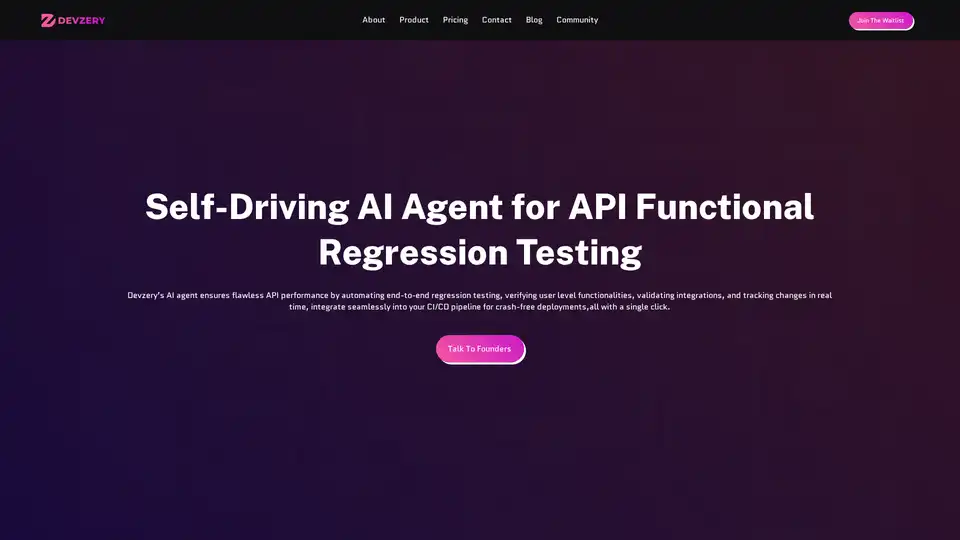
Devzery revolutionizes API testing with AI-driven automation for regression, integration, and load tests. Integrate into CI/CD pipelines for faster, bug-free releases and enhanced efficiency in software development.
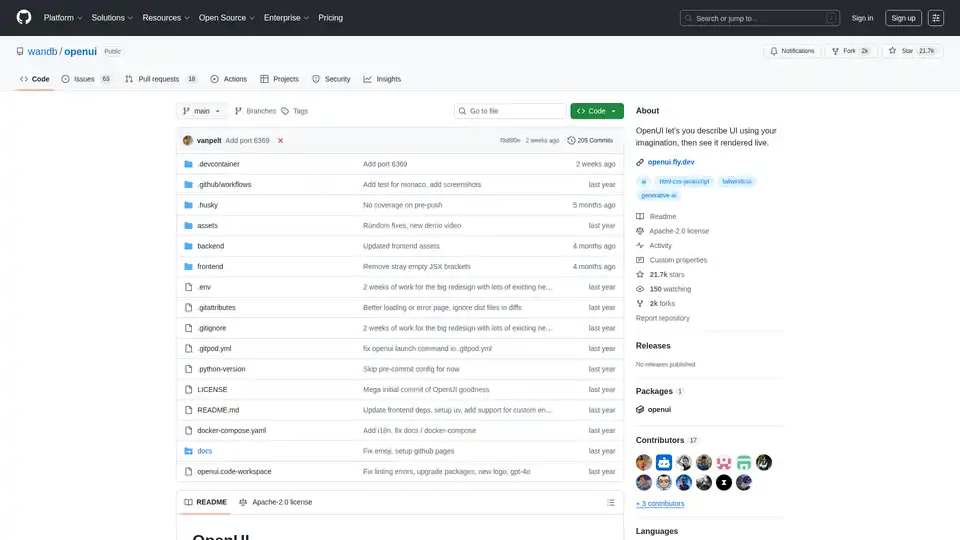
OpenUI is an open-source tool that lets you describe UI components in natural language and renders them live using LLMs. Convert descriptions to HTML, React, or Svelte for fast prototyping.
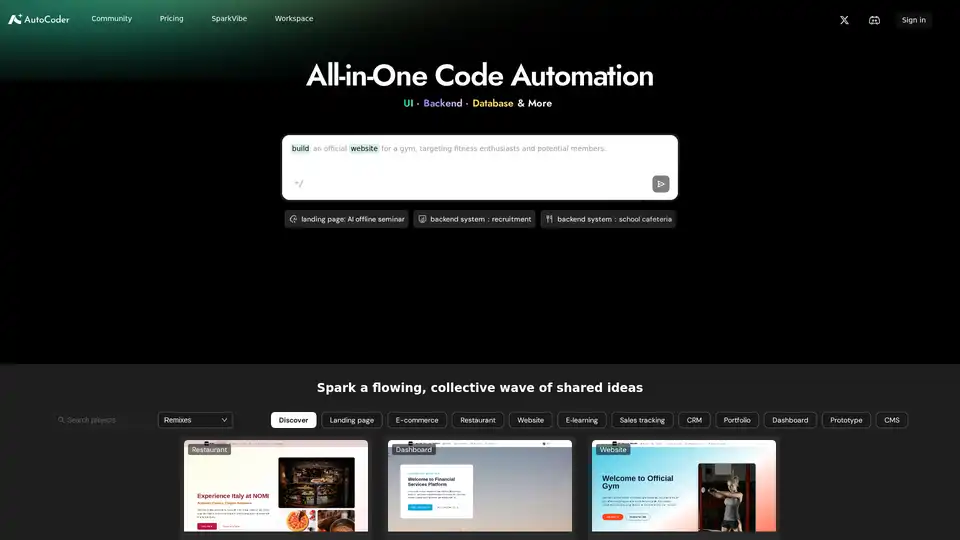
The easiest AI coding tool. Just chat to build professional web apps—complete with design, functionality, and data storage. No tech skills needed!
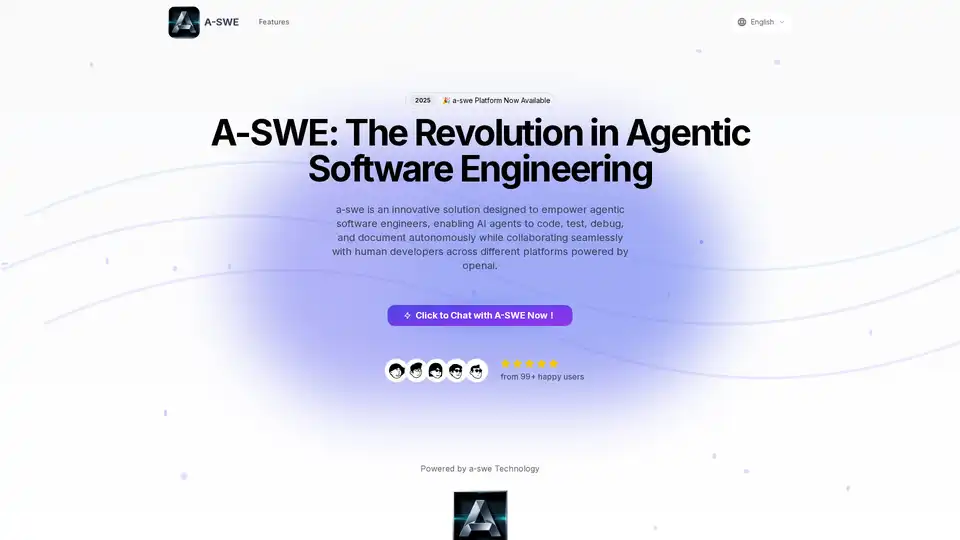
A-SWE is an AI platform designed to empower agentic software engineers, enabling AI agents to autonomously code, test, debug, and document, enhancing software development.
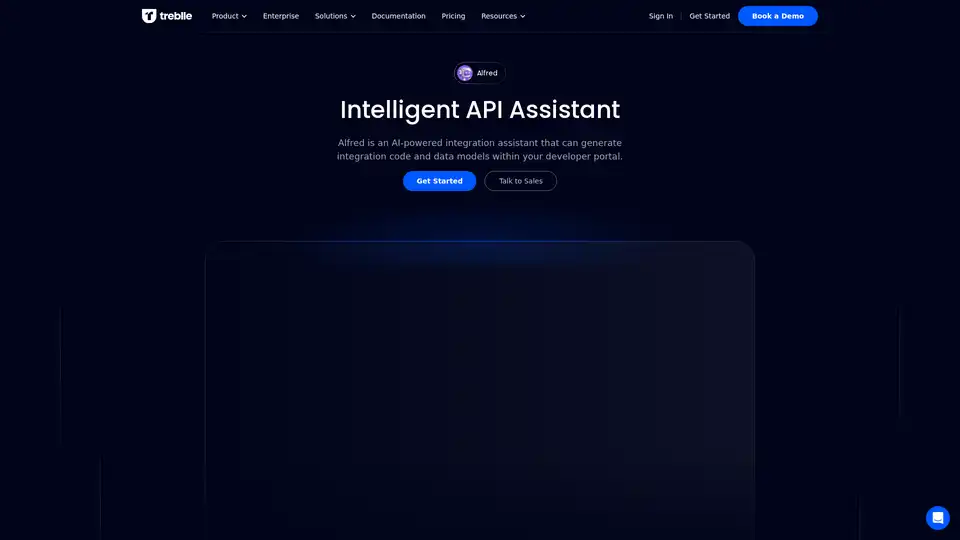
Transform your developer portal with Alfred AI—automating workflows, generating integrations, tests, or SDKs in any language, and boosting API speed 10x.
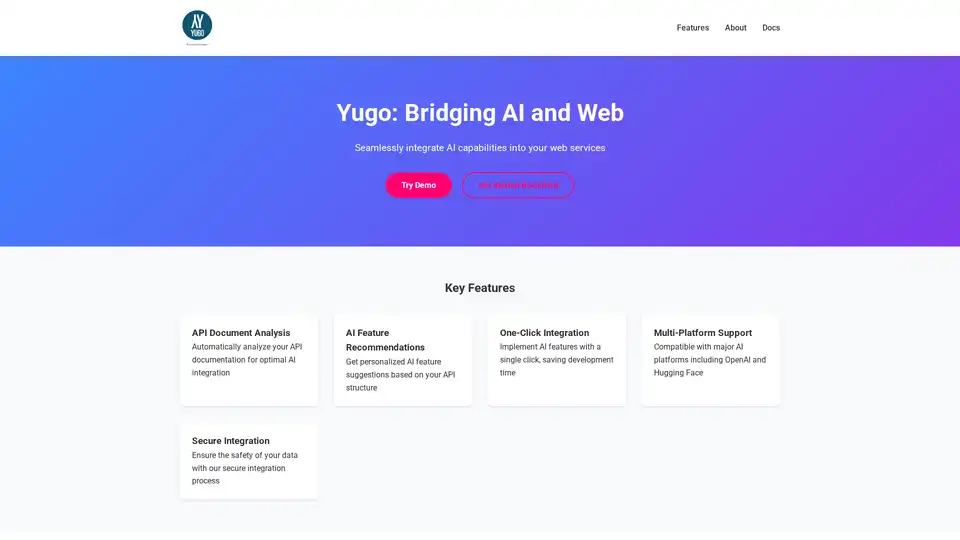
Yugo simplifies AI integration into web services with automated API analysis, personalized feature recommendations, and one-click implementation, empowering developers to build advanced applications efficiently.

Vilosia helps enterprises migrate legacy systems with an AI-powered platform. Build reliable Go backends faster using natural language and test-driven development. Visualize code and simplify migration.
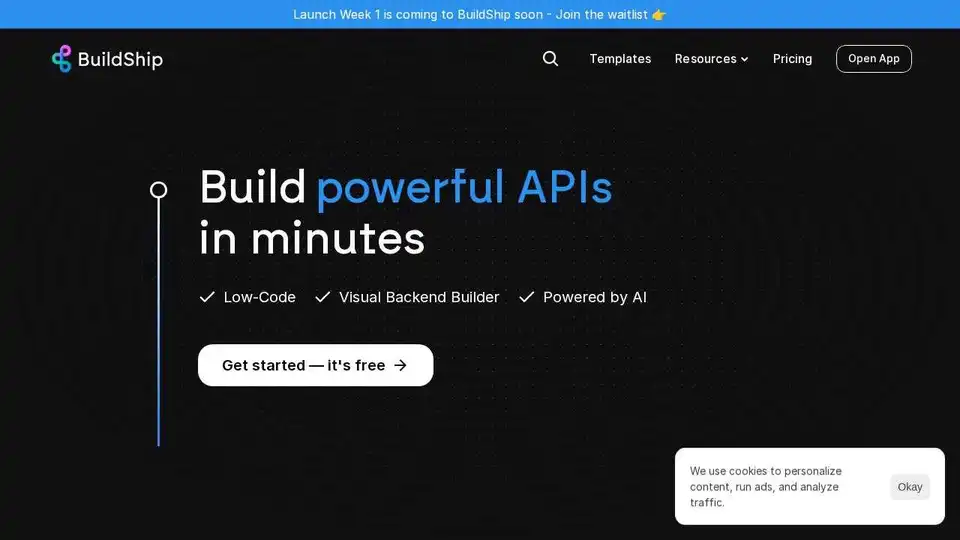
BuildShip: AI-powered visual builder for workflows, APIs, and automation. Connect AI models, tools, and databases with no-code simplicity.
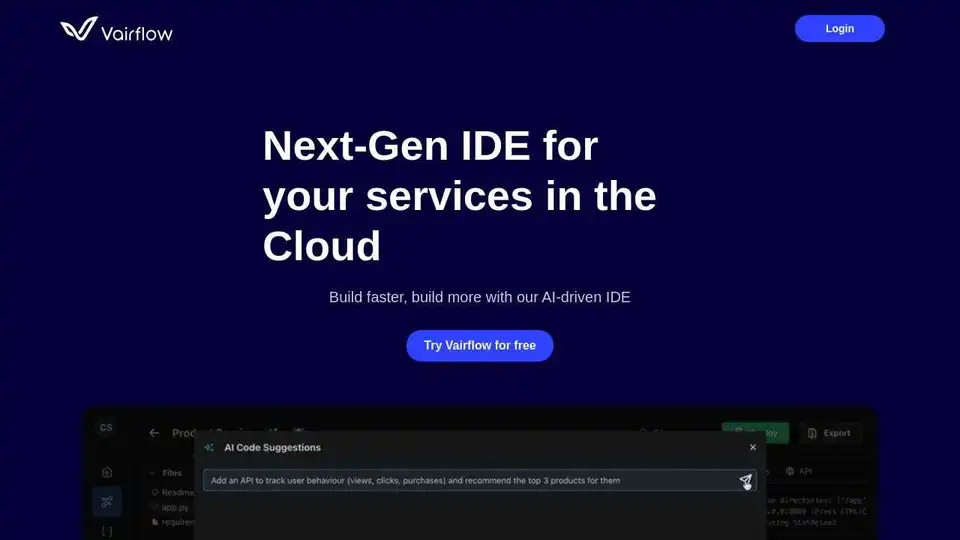
Vairflow is an AI-driven Next-Gen IDE for services in the Cloud. Build faster with AI-powered code generation and deployment.
